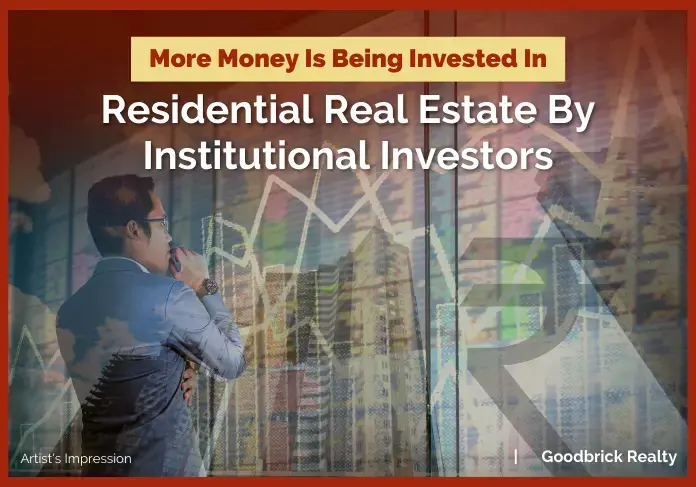
As a result of the improved sales momentum in the residential real estate market, institutional investors have begun to invest more capital in this sector.
When investing in suitable projects and locations, institutional investors also take recoveries into consideration.
The Real Estate (Regulation and Development) Act, which was passed in 2016, has made the residential real estate market more open. Because of this, institutional investors are getting more confident and putting more money into this industry.
MD and head of Capital Markets for India at JLL, Lata Pillai, according to Lata Pillai, shares that “Over the past several years, there has been a lot of merger activity in this industry, and there is a strong realization that the industry has mostly been cleared away.” This, together with the high residential demand we are currently experiencing, has encouraged many investors to return to the market.
The pace for home sales and institutional investors’ enthusiasm in the real estate industry is set to continue owing to significant hiring over the previous 18 months and rising incomes in tech, medicine, and other industries.
The return of the residential segment, which has witnessed the second-highest proportion of all investments in India’s real estate, is one of the unique attributes of the investments in 2021, in her opinion.
The housing market in 2021 made 2.3 times as much money as it did in 2020. This amounts to $1.08 billion, up from $460 million in 2020.
In response to the growing demand, despite the pandemic, Mumbai’s real estate market reached a 10-year high for residential properties due to which real estate developers are also willing to invest in land and even work on joint projects.
Funded land investments are proceeding in the same manner as in the years 2014 and 2015. Until last year, this was accomplished through the acquisition of unfinished projects; presently, it is achieved under agreements for development management.
Meraqi Advisors’ MD, Gorakh Jhunjhunwala, said, “Institutional funds anticipate residential demand to stay strong for the next four years because the housing phase usually lasts between 5 and 7 years.”
The transactions that have occurred during the last few months also show that the residential sector is still a good place to invest.
Brookfield Asset Management recently put more than 1,000 crores into five residential projects being built by Hyderabad-based real estate developer INDIS.
This was done to expand its housing estate investments in the mid-market sector in South India’s urban areas.
As a result of the improved sales momentum in the residential real estate market, institutional investors have begun to invest more capital in this sector.
The Real Estate (Regulation and Development) Act, which was passed in 2016, has made the residential real estate market more open and return of the residential segment, which has witnessed the second-highest proportion of all investments in India’s real estate, is one of the unique attributes of the investments in 2021.